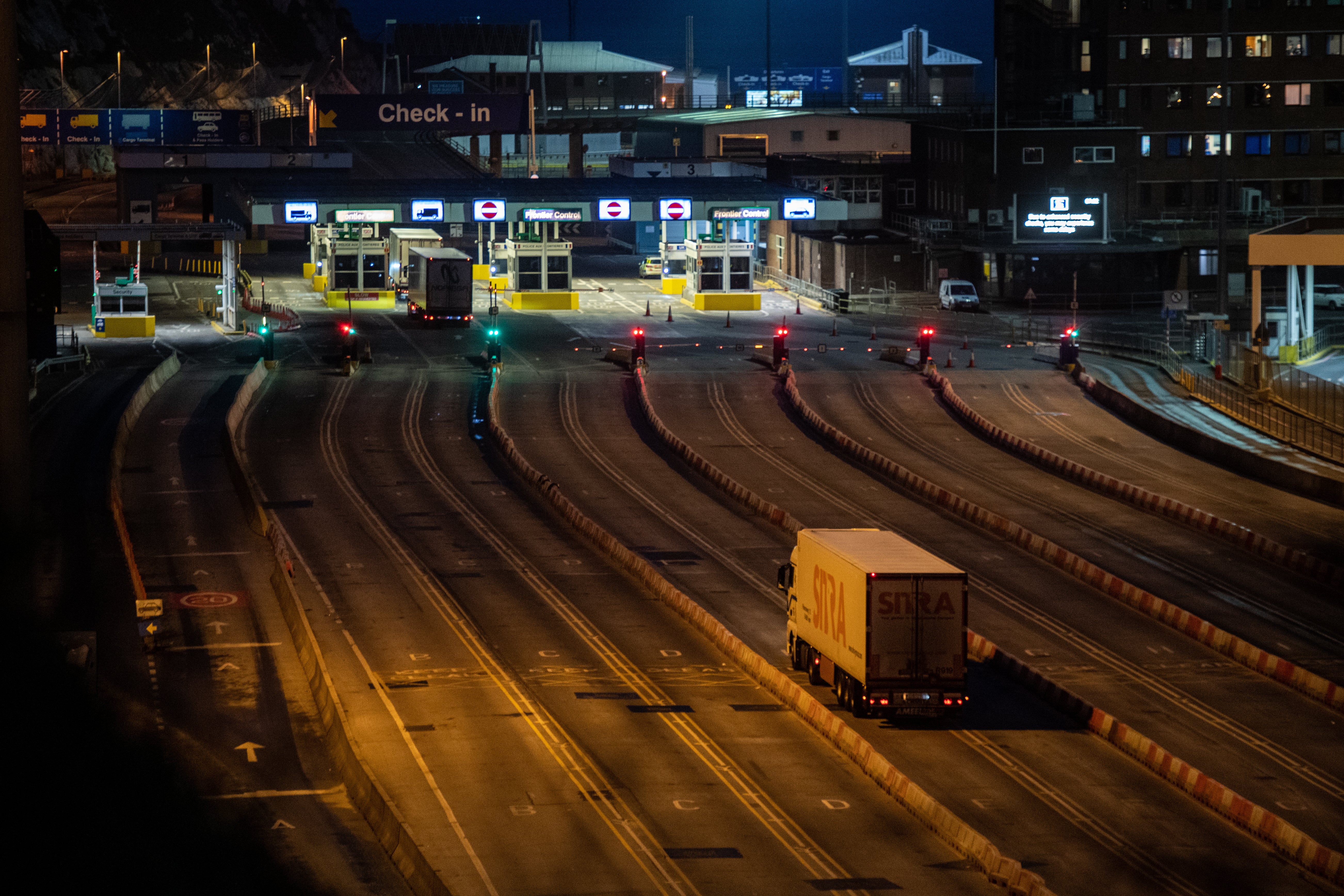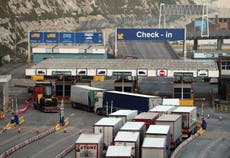Your support helps us to tell the story
From reproductive rights to climate change to Big Tech, The Independent is on the ground when the story is developing. Whether it's investigating the financials of Elon Musk's pro-Trump PAC or producing our latest documentary, 'The A Word', which shines a light on the American women fighting for reproductive rights, we know how important it is to parse out the facts from the messaging.
At such a critical moment in US history, we need reporters on the ground. Your donation allows us to keep sending journalists to speak to both sides of the story.
The Independent is trusted by Americans across the entire political spectrum. And unlike many other quality news outlets, we choose not to lock Americans out of our reporting and analysis with paywalls. We believe quality journalism should be available to everyone, paid for by those who can afford it.
Your support makes all the difference.The first ferries arrived in Dover and Holyhead after Britain’s exit from the single market and customs union on Friday, with severe border chaos yet to materialise.
Freight and transit companies attributed the relative calm at entry ports to the reduced service on New Year’s Day and warned there could yet be disruption of the kind seen last week during border closures.
Yet despite the lack of tailbacks the new rules still caused problems, with half a dozen lorries turned away from one port for not having the correct paperwork to export to the EU.
It comes as French president Emmanuel Macron used his new year address to lambast Brexit as the product of “lies and false promises”.
Irish foreign minister Simon Coveney also joined the chorus of criticism, warning the UK’s exit was “not something to celebrate” as he outlined the bleak downsides of Britain’s leaving the single market.
Ferry operator Stena Line said it had been “quiet” in Holyhead, Great Britain’s main sea link to Dublin but that “six freight loads bound for Ireland have had to be turned away due to not have the correct references”.
The company said it was running a “reduced service” which mean “much less activity than usual”, and also cited the GB to Ireland travel ban currently in place.
Dover saw just a trickle of lorries, with operator Eurotunnel saying traffic was particularly quiet because businesses had stockpiled in advance of a possible no-deal.
The Road Haulage Association, which represents lorry operators, said the chaos would be largely invisible and take the form of drivers being turned away for not having the right paperwork rather than tailbacks.
While Britain left the EU earlier in 2020, it remained tied to EU trading rules until 11pm on New Year’s Eve, or midnight Brussels time.
Businesses trading with Europe will now have to deal with dramatically more bureaucracy, filling in around 200 million extra customs declarations and year as frictionless trade comes to an end.
A last-minute free trade agreement negotiated by Boris Johnson managed to reduce some of the damage caused by the policy, but the new settlement is still expected to reduce UK growth by around 5.4 per cent in the long-term, according to the government’s own estimates.
Speaking to the French people on New Year’s Eve, Mr Macron said: “The United Kingdom remains our neighbour but also our friend and ally. This choice of leaving Europe, this Brexit, was the child of European malaise and lots of lies and false promises.
“I want to tell you very clearly this evening, our destiny is first of all in Europe. Our sovereignty is national and I will do everything to ensure we remain the masters of our destiny and our lives. But this sovereignty also acts through the stronger, more autonomous and more united EU that we have built in 2020.”
EU chief negotiator Michel Barnier – who has described Brexit as a divorce which is nothing to celebrate – suggested the UK has tough times ahead.
Mr Barnier said that “when you see today’s world, a dangerous, unstable and unjust world, I definitely think that it is better to be together, with our neighbours in a union, a single market, than everyone being in their own corner, with their own interests.”
Speaking on Radio 4’s Today programme on Friday morning, Ireland’s Mr Coveney said: “Today is the end of an era. For 48 years, the United Kingdom really has been a central part of the European Union and that is now firmly ending with the end of the transition period post-Brexit.
“For all of us in Ireland, that is not something to celebrate.
“Our relationship with United Kingdom is so close, so integrated, so interwoven, politically, economically, and from a family perspective. My own personal story is so shaped by the Anglo-Irish relationship, and that’s the same for so many other Irish people.”


Join our commenting forum
Join thought-provoking conversations, follow other Independent readers and see their replies
Comments